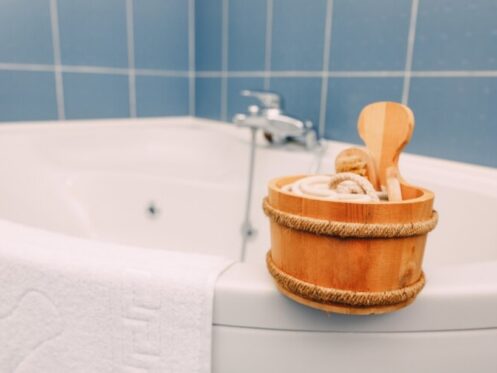Water heaters are essential for keeping our homes in Derby comfortable and functional, especially when it comes to daily activities like showering and washing dishes. These systems, though reliable, do require regular maintenance to prevent problems that can disrupt your household routine. One key component of a water heater that often goes unnoticed is the anode rod, which plays a crucial role in protecting the unit from corrosion and extending its lifespan.
Understanding the function of the anode rod helps homeowners in Derby maintain their water heaters effectively. This rod is designed to attract corrosive elements in the water, thereby preventing these elements from damaging the tank itself. Regular checks and replacement of this component can significantly enhance the durability of your water heater, so it’s important to know what it is and how it works.
What is an Anode Rod?
An anode rod is a component inside your water heater that serves a critical function. It is made from a metal that is more reactive to corrosion than the metal of the tank, typically magnesium, aluminum, or zinc. By corroding itself, the anode rod acts as a sacrifice to protect the steel liner of the water heater tank. Without this rod, corrosive elements would attack the tank, leading to leaks or even total failure over time.
Understanding the types of anode rods available can help homeowners choose the right one for their needs:
– Magnesium: This type is often used where the water supply is not very harsh. Magnesium rods are highly effective at collecting corrosive elements, but they can deplete faster in hard water conditions.
– Aluminum: These rods are suitable for areas with harder water, as they tend to last longer. However, they can sometimes leave a gel-like substance at the bottom of the tank.
– Zinc: Typically a combination of aluminum and zinc, these rods can help combat certain odors in the water, particularly in areas with sulfur issues.
The right anode rod can make a significant difference in how well your water heater performs and how long it lasts. It’s important to select one that is compatible with the specific conditions of your water supply in Derby. Recognizing when your anode rod needs to be replaced is also crucial in maintaining an efficient and long-lasting water heater.
Signs Your Anode Rod Needs Replacement
Keeping an eye on your water heater’s anode rod is essential for maintaining its efficiency and longevity. You may wonder how to tell when this component needs replacement. Several signs indicate it’s time for a new anode rod in your Derby water heater.
Visual inspection is one way to determine the condition of an anode rod. If the rod appears corroded or heavily worn, it’s likely time for a replacement. Look for signs such as large sections missing or a thin, wire-like appearance. Additionally, if you notice water discoloration when you run the hot tap, this could signal rust in the water heater, suggesting that the anode rod is overworked and not performing correctly.
Other indicators include unpleasant odors in your hot water, often described as a sulfur or rotten egg smell. This can occur when bacteria react with the rod, releasing a foul odor. Lastly, if you notice a decrease in heating efficiency or strange noises coming from the water heater, these could be signs that the rod is no longer protecting the tank effectively and replacement is necessary.
How to Inspect and Replace an Anode Rod
Checking and replacing the anode rod doesn’t have to be daunting with the right guidance. Here’s a simple step-by-step process for inspecting and replacing it.
1. Turn off the power and water supply to the heater.
2. Drain a few gallons of water from the tank to prevent any overflow during inspection.
3. Use a wrench to unscrew the old anode rod from the top of the heater.
4. Examine the rod for wear. If it’s less than half an inch thick or covered with calcium buildup, it needs replacing.
5. Install the new anode rod by screwing it into the same place, ensuring it’s tightened securely.
Ensure safety by using the right tools, such as a socket wrench and water heater wrench. It’s a good idea to seek a qualified professional if you’re unsure or uncomfortable with the procedure, as our technicians can ensure a proper fit and function.
Benefits of Regular Anode Rod Maintenance
Maintaining your water heater through regular inspection and replacement of the anode rod offers several advantages. First, it helps extend the life of your water heater by protecting the tank from rust and corrosion. This foresight can prevent unexpected leaks or damage that result in costly repairs or replacements down the line.
Efficiency is another benefit. A functioning anode rod allows the heater to maintain optimal performance, heating water more effectively and reducing energy costs. You’ll also enjoy peace of mind knowing your water heater is protected, avoiding disruptions in your daily routine.
Ensuring Optimal Performance of Your Water Heater
Focusing on anode rod maintenance can significantly impact your water heater’s overall performance. Regularly check and replace the rod, especially if you notice any signs of wear. We recommend professional inspections every couple of years to catch issues early.
Taking these proactive steps in Derby ensures that your water heater remains reliable, efficient, and durable. Proper care and attention can keep your home’s water heating system running smoothly, providing comfort and convenience for years to come.
If you are experiencing issues with maintaining your water heater, consider exploring our professionals’ advice on water heaters in Derby to keep your system running reliably throughout the year. Midwest Mechanical understands how important it is to have a dependable system for your home, and our experts are ready to help ensure your water heating setup remains efficient and effective. For a quick estimate or to book a service visit, please contact us today.
